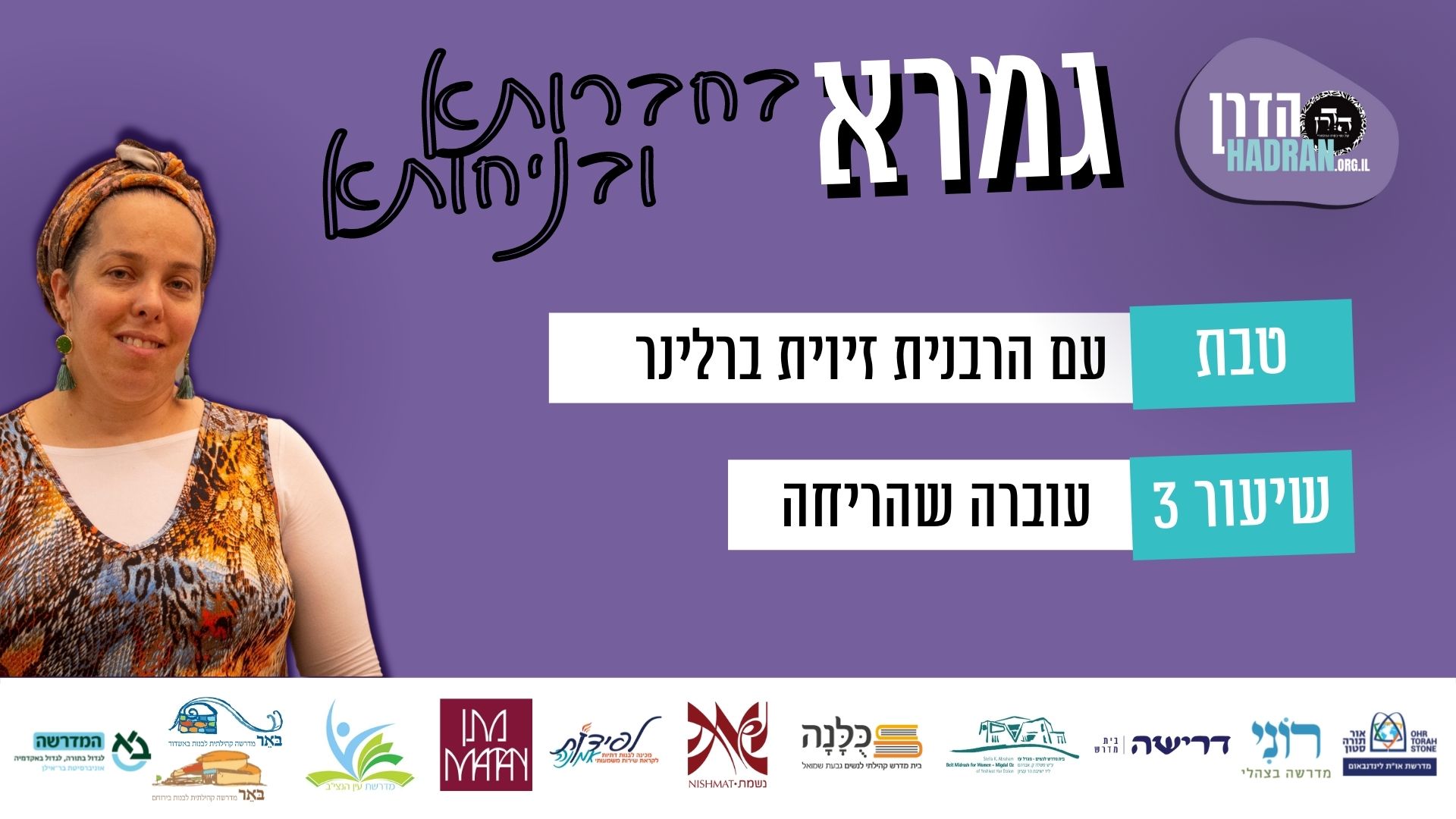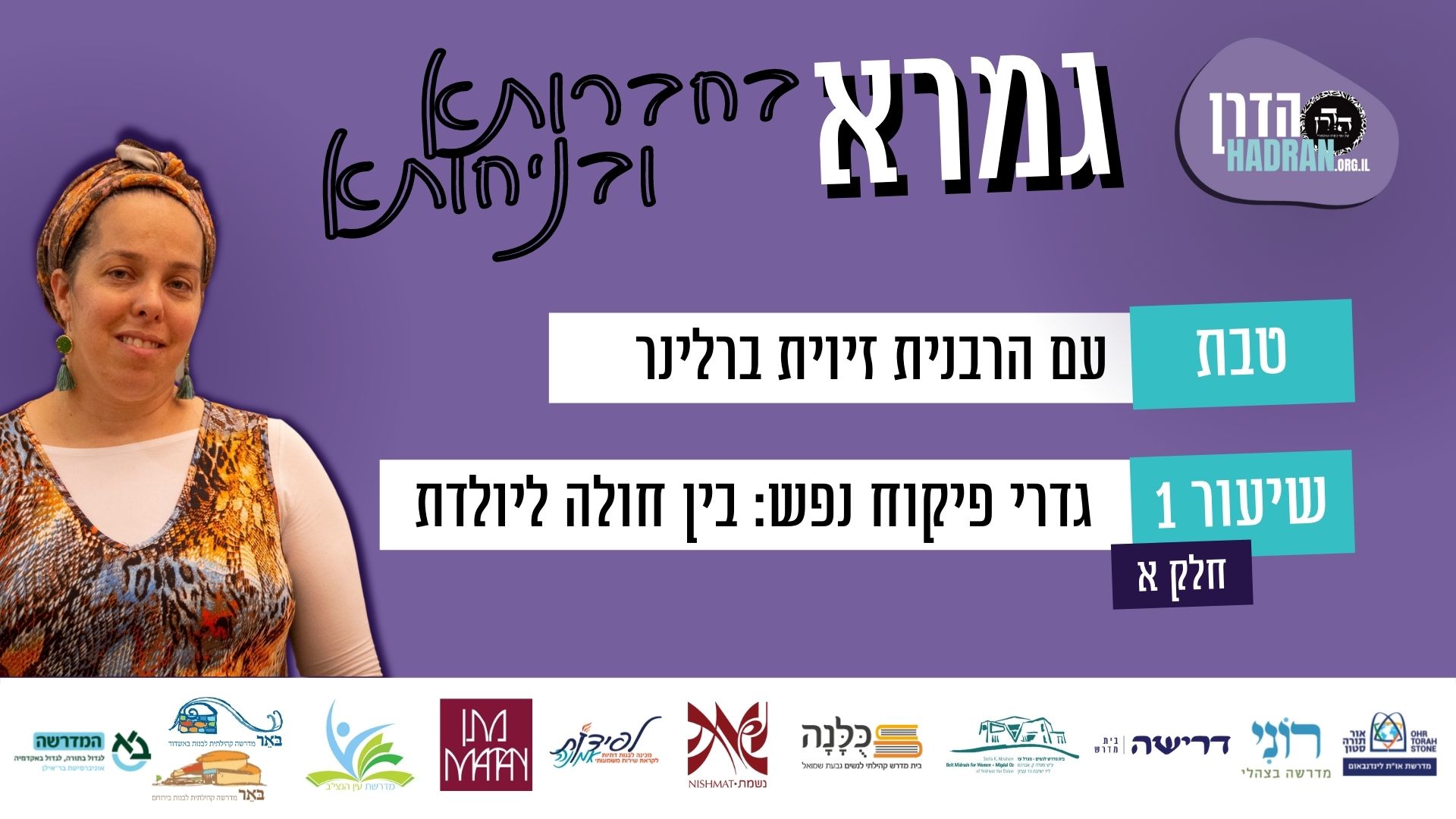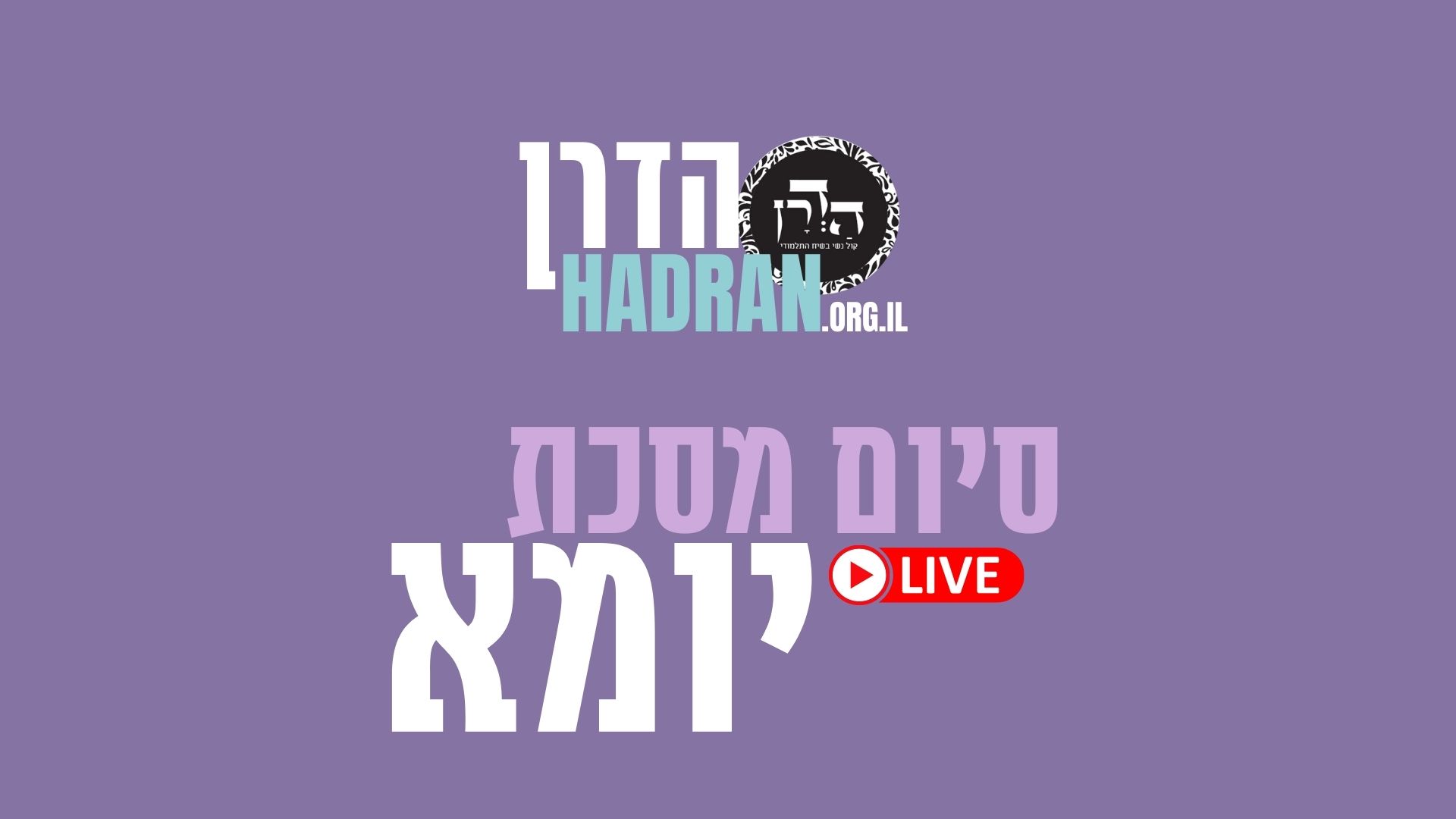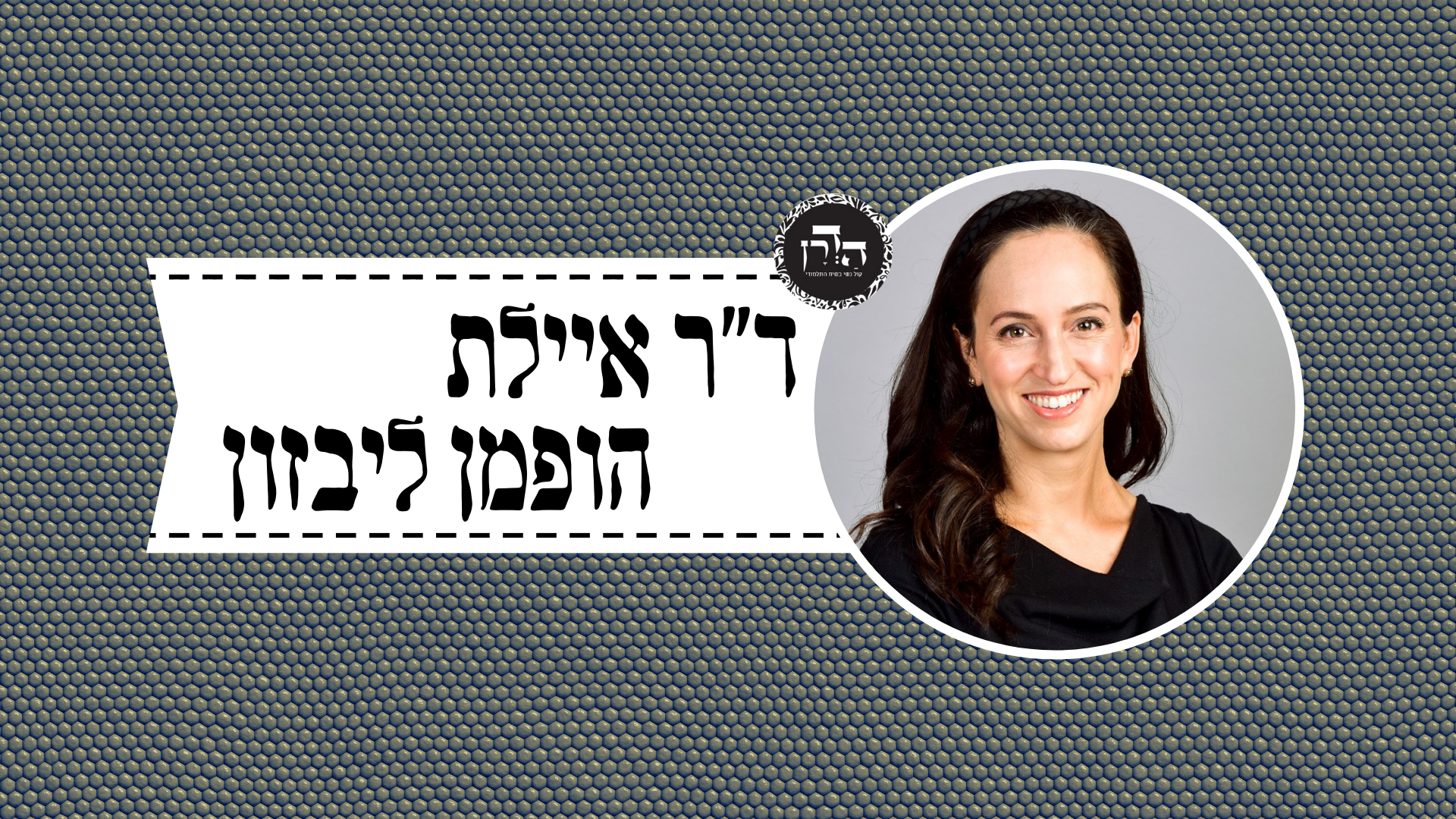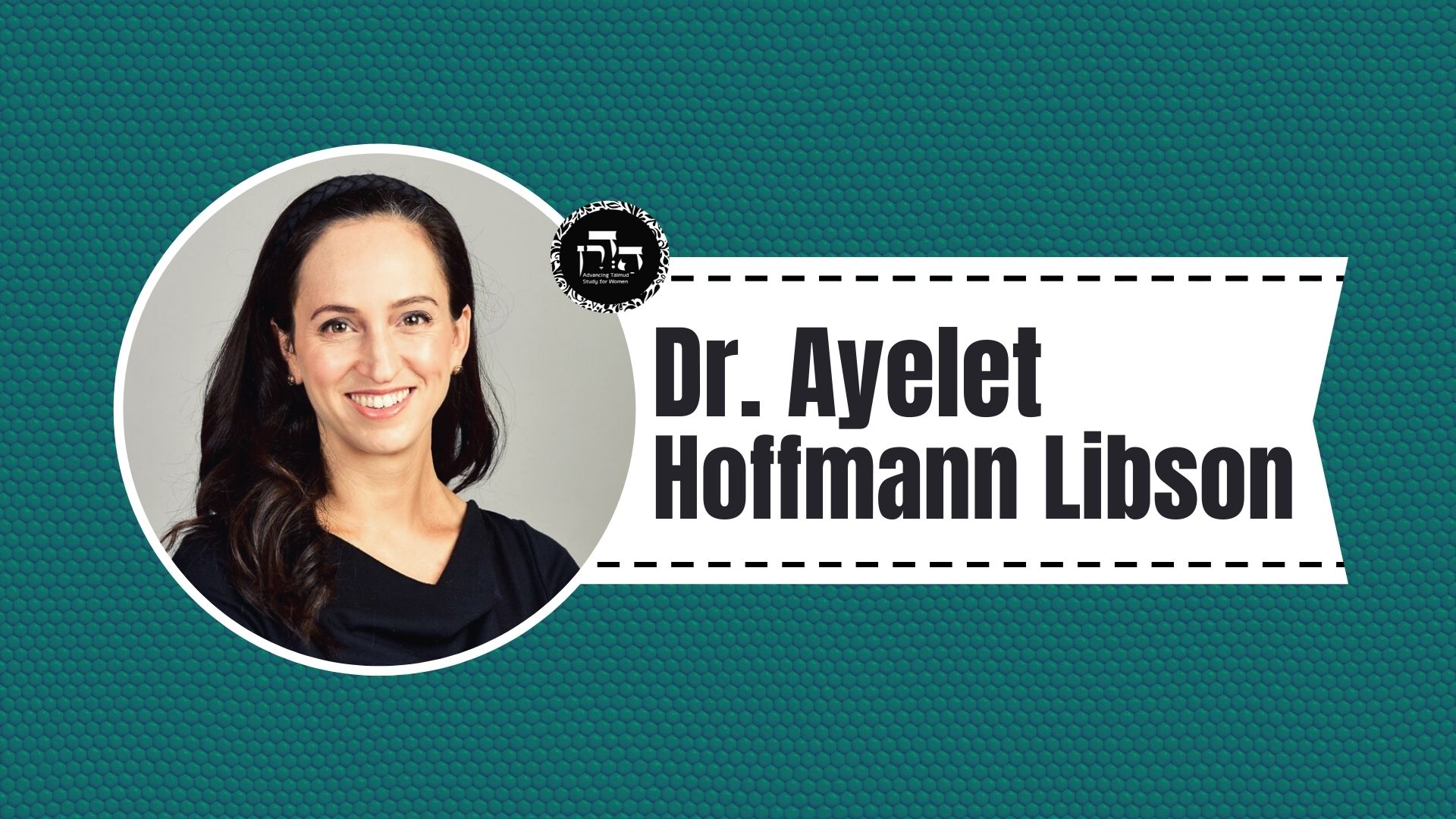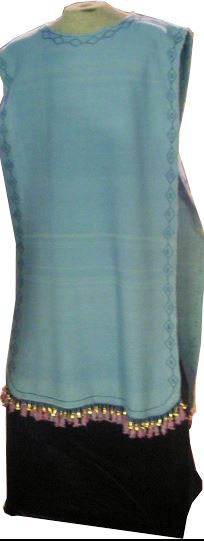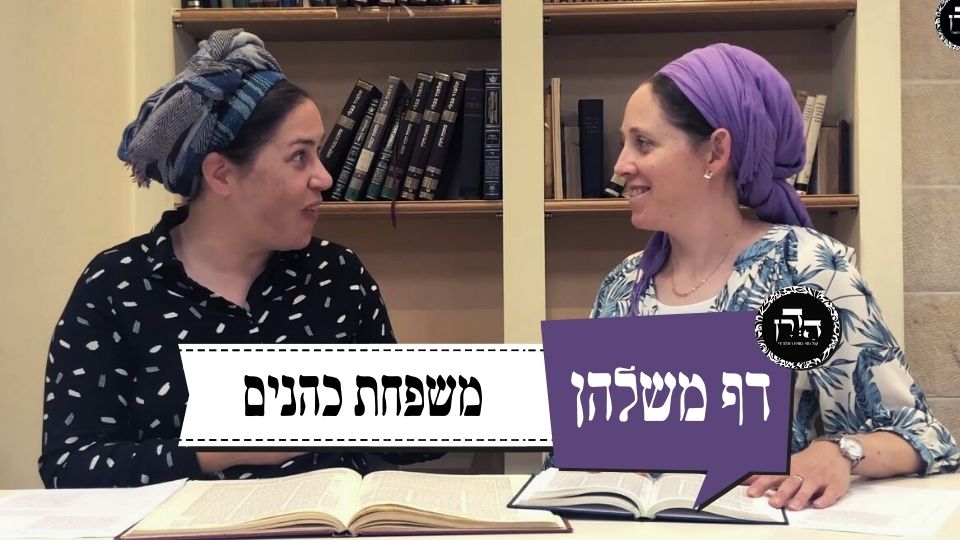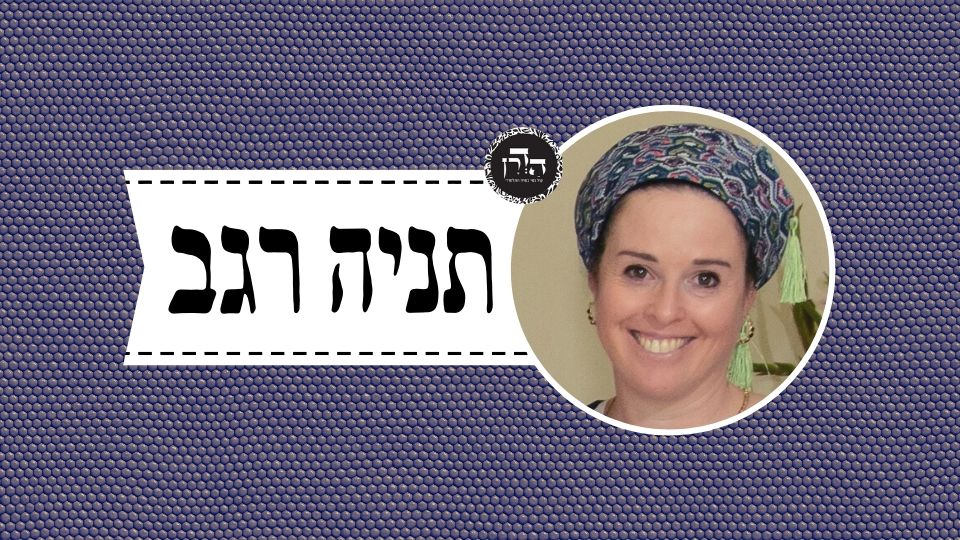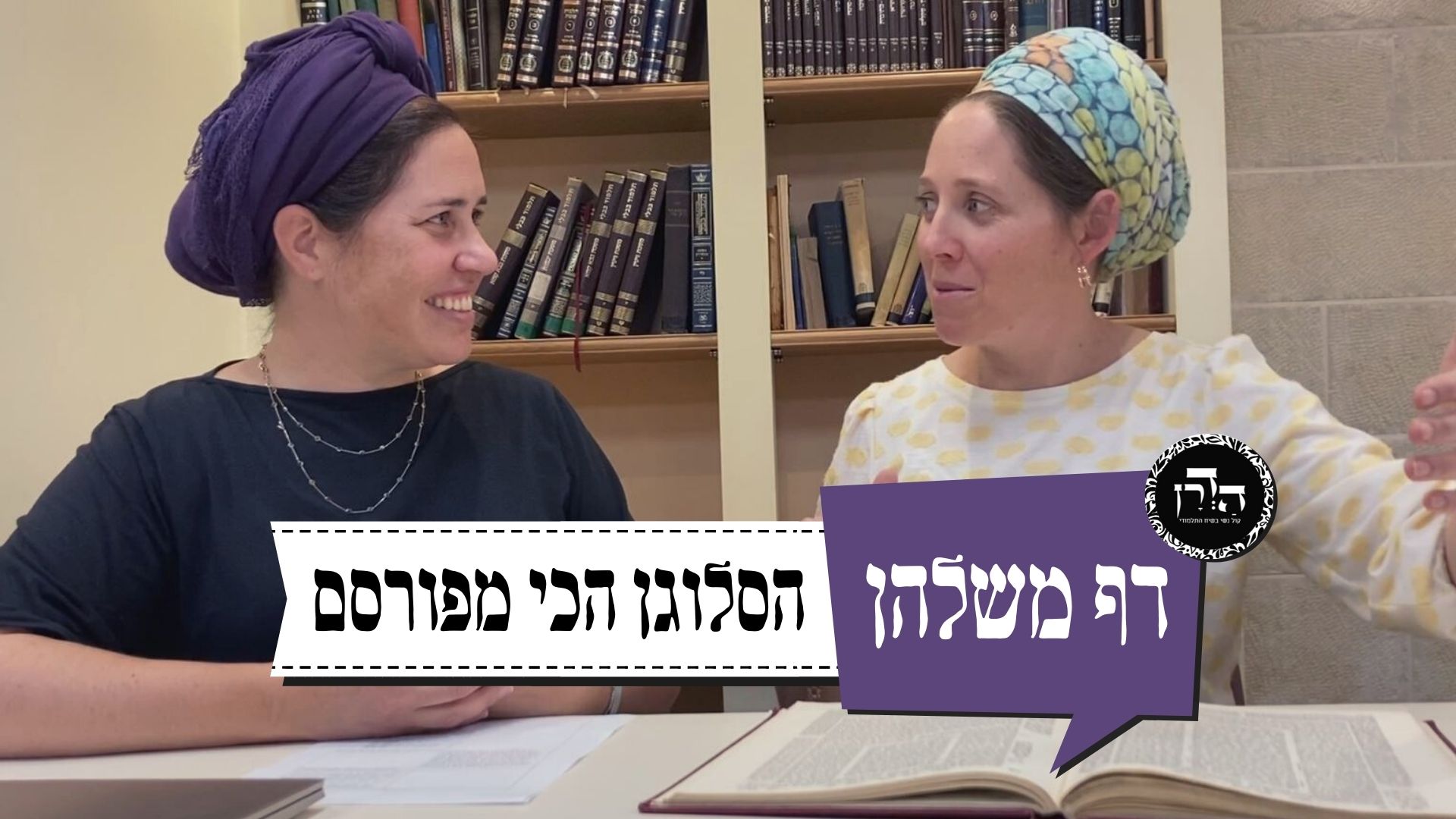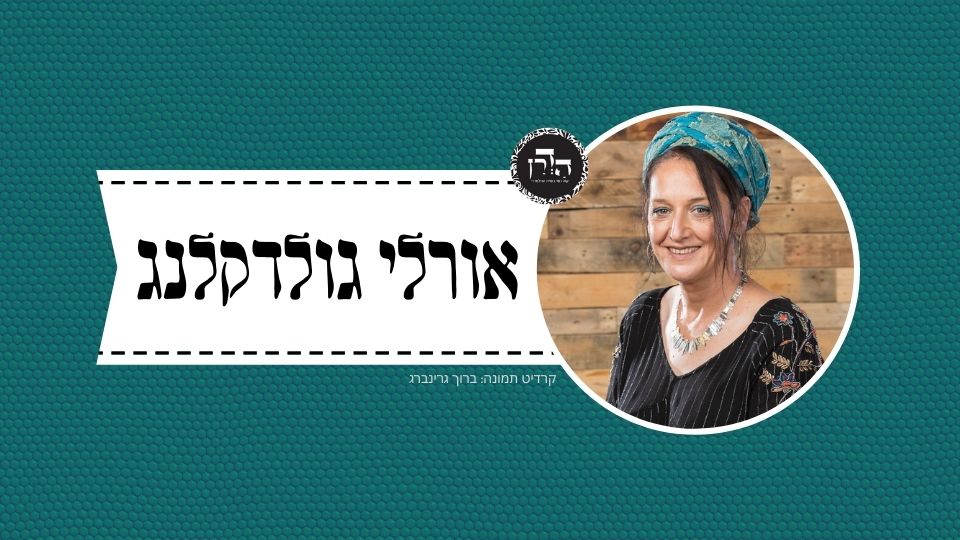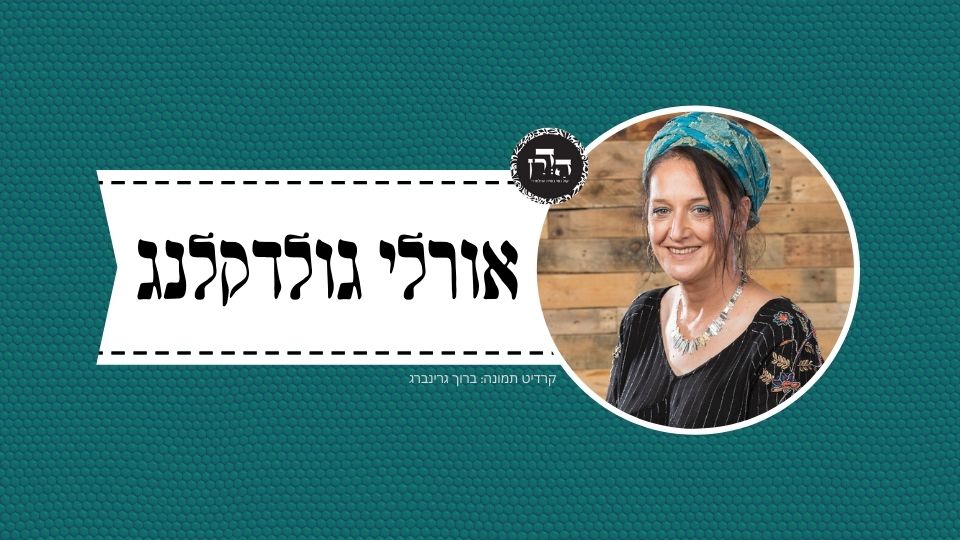יומא עו
זֶה יְהוֹשֻׁעַ שֶׁיָּרַד לוֹ מָן כְּנֶגֶד כׇּל יִשְׂרָאֵל. כְּתִיב הָכָא ״אִישׁ״, וּכְתִיב הָתָם: ״קַח לְךָ אֶת יְהוֹשֻׁעַ בִּן נוּן אִישׁ אֲשֶׁר רוּחַ בּוֹ״. וְאֵימָא מֹשֶׁה, דִּכְתִיב: ״וְהָאִישׁ מֹשֶׁה עָנָו מְאֹד״? דָּנִין ״אִישׁ״ מֵ״אִישׁ״, וְאֵין דָּנִין ״אִישׁ״ מִ״וְּהָאִישׁ״.
the verse is referring to Joshua, for whom manna fell corresponding to all the rest of the Jewish people, when he waited for Moses at Mount Sinai during the forty days Moses was on the mountain. The verses allude to this: “Man” is written here, and “man” is written there: “Take to you Joshua, the son of Nun, a man in whom there is spirit, and lay your hand upon him” (Numbers 27:18). From here, the Gemara learns that the “man” is Joshua. The Gemara asks: Say that the verse is referring to Moses, about whom it is written: “Now the man Moses was very humble” (Numbers 12:3). The Gemara answers: We can learn a verbal analogy to the word “man” from the word “man,” but we cannot learn a verbal analogy to the word “man” from the phrase “the man,” which is used to refer to Moses.
שָׁאֲלוּ תַּלְמִידָיו אֶת רַבִּי שִׁמְעוֹן בֶּן יוֹחַי: מִפְּנֵי מָה לֹא יָרַד לָהֶם לְיִשְׂרָאֵל מָן פַּעַם אַחַת בַּשָּׁנָה? אָמַר לָהֶם: אֶמְשׁוֹל לָכֶם מָשָׁל: לְמָה הַדָּבָר דּוֹמֶה? לְמֶלֶךְ בָּשָׂר וָדָם שֶׁיֵּשׁ לוֹ בֵּן אֶחָד, פָּסַק לוֹ מְזוֹנוֹתָיו פַּעַם אַחַת בַּשָּׁנָה, וְלֹא הָיָה מַקְבִּיל פְּנֵי אָבִיו אֶלָּא פַּעַם אַחַת בַּשָּׁנָה. עָמַד וּפָסַק מְזוֹנוֹתָיו בְּכׇל יוֹם, וְהָיָה מַקְבִּיל פְּנֵי אָבִיו כׇּל יוֹם.
Furthermore, with regard to the manna: The students of Rabbi Shimon ben Yoḥai asked him: Why didn’t the manna fall for the Jewish people just once a year to take care of all their needs, instead of coming down every day? He said to them: I will give you a parable: To what does this matter compare? To a king of flesh and blood who has only one son. He granted him an allowance for food once a year and the son greeted his father only once a year, when it was time for him to receive his allowance. So he arose and granted him his food every day, and his son visited him every day.
אַף יִשְׂרָאֵל, מִי שֶׁיֵּשׁ לוֹ אַרְבָּעָה וַחֲמִשָּׁה בָּנִים הָיָה דּוֹאֵג וְאוֹמֵר: שֶׁמָּא לֹא יֵרֵד מָן לְמָחָר, וְנִמְצְאוּ כּוּלָּן מֵתִים בָּרָעָב, נִמְצְאוּ כּוּלָּן מְכַוְּונִים אֶת לִבָּם לַאֲבִיהֶן שֶׁבַּשָּׁמַיִם.
So too, in the case of the Jewish people, someone who had four or five children would be worried and say: Perhaps the manna will not fall tomorrow and we will all die of starvation. Consequently, everyone directed their hearts to their Father in heaven every day. The manna that fell each day was sufficient only for that day, so that all of the Jewish people would pray to God for food for the next day.
דָּבָר אַחֵר: שֶׁהָיוּ אוֹכְלִין אוֹתוֹ כְּשֶׁהוּא חַם. דָּבָר אַחֵר: מִפְּנֵי מַשּׂאוֹי הַדֶּרֶךְ.
Alternatively, they received manna daily so that they would be able to eat it while it was hot and fresh. Alternatively, they received manna daily due to the hardship of carrying on the journey. They did not stay in the same place all those years, and it would have been difficult for them to carry the manna from one place to another. Therefore, the manna fell wherever they went.
וּכְבָר הָיָה רַבִּי טַרְפוֹן וְרַבִּי יִשְׁמָעֵאל וּזְקֵנִים יוֹשְׁבִין וְעוֹסְקִין בְּפָרָשַׁת הַמָּן, וְהָיָה רַבִּי אֶלְעָזָר הַמּוֹדָעִי יוֹשֵׁב בֵּינֵיהֶן. נַעֲנָה רַבִּי אֶלְעָזָר הַמּוֹדָעִי וְאָמַר: מָן שֶׁיָּרַד לָהֶן לְיִשְׂרָאֵל הָיָה גָּבוֹהַּ שִׁשִּׁים אַמָּה. אָמַר לוֹ רַבִּי טַרְפוֹן: מוֹדָעִי, עַד מָתַי אַתָּה מְגַבֵּב דְּבָרִים וּמֵבִיא עָלֵינוּ!
§ It is told: Rabbi Tarfon, and Rabbi Yishmael, and the Elders were sitting and discussing the passage about the manna and Rabbi Elazar HaModa’i was sitting among them. Rabbi Elazar HaModa’i responded and said: The manna that fell for the Jewish people was sixty cubits high. Rabbi Tarfon said to him: Moda’i, how long will you collect words and bring upon us teachings that have no basis?
אָמַר לוֹ: רַבִּי, מִקְרָא אֲנִי דּוֹרֵשׁ: ״חֲמֵשׁ עֶשְׂרֵה אַמָּה מִלְמַעְלָה גָּבְרוּ הַמָּיִם וַיְכֻסּוּ הֶהָרִים״, וְכִי חֲמֵשׁ עֶשְׂרֵה אַמָּה בָּעֵמֶק, (חֲמֵשׁ עֶשְׂרֵה בַּשְּׁפֵלָה,) חֲמֵשׁ עֶשְׂרֵה בֶּהָרִים? וְכִי מַיָּא שׁוּרֵי שׁוּרֵי קָיְימִי. וְעוֹד: תֵּיבָה הֵיכִי סַגִּיָא? אֶלָּא, נִבְקְעוּ כׇּל מַעְיְנוֹת תְּהוֹם רַבָּה עַד דְּאַשְׁווֹ מַיָּא בַּהֲדֵי טוּרֵי, וַהֲדַר ״חֲמֵשׁ עֶשְׂרֵה אַמָּה מִלְמַעְלָה גָּבְרוּ הַמָּיִם״.
He said to him: Rabbi, I am interpreting a verse. How so? It states about the Flood: “Fifteen cubits above did the waters prevail; and the mountains were covered” (Genesis 7:20). Is it possible that it would be fifteen cubits high from a valley, fifteen cubits from the plain, and fifteen cubits from the mountains? Did the water stand as though in layers, conforming to the height of the land below it? Furthermore, how could the Ark travel over water that was at different levels? Rather: “On the same day were all the fountains of the great deep broken up” (Genesis 7:11), until the water rose and was level with the mountains. Afterward, the verse states that “fifteen cubits above did the waters prevail.”
וְכִי אֵי זֶה מִדָּה מְרוּבָּה, מִדָּה טוֹבָה אוֹ מִדַּת פּוּרְעָנוּת? הֱוֵי אוֹמֵר: מִדָּה טוֹבָה מִמִּדַּת פּוּרְעָנוּת, בְּמִדַּת פּוּרְעָנוּת הוּא אוֹמֵר: ״וַאֲרוּבּוֹת הַשָּׁמַיִם נִפְתָּחוּ״. בְּמִדָּה טוֹבָה הוּא אוֹמֵר: ״וַיְצַו שְׁחָקִים מִמָּעַל וְדַלְתֵי שָׁמַיִם פָּתָח וַיַּמְטֵר עֲלֵיהֶם מָן לֶאֱכוֹל וּדְגַן שָׁמַיִם נָתַן לָמוֹ״.
Rabbi Elazar HaModa’i continues: But which attribute is greater, the attribute of goodness or the attribute of retribution? One must say the attribute of goodness is greater than the attribute of retribution. With regard to the attribute of retribution, in the case of the Flood, the verse states: “And the windows of heaven were opened” (Genesis 7:11), which indicates that there were only windows. Whereas, with regard to the attribute of goodness, in the case of the manna, the verse states: “He commanded the skies above, and opened the doors of heaven, and rained down manna upon them to eat and gave them heavenly grain” (Psalms 78:23–24).
כַּמָּה אֲרוּבּוֹת יֵשׁ בְּדֶלֶת — אַרְבַּע אַרְבַּע, הֲרֵי כָּאן שְׁמוֹנֶה, וְנִמְצָא מָן שֶׁיָּרַד לָהֶם לְיִשְׂרָאֵל גָּבוֹהַּ שִׁשִּׁים אַמָּה.
Based on this, the Gemara calculates: The area of how many windows are in a door? Four. A door is equivalent to four windows in size. One adds another four for the second door, as the verse uses the plural “doors,” which implies that there were two doors. This equals the area of eight windows. If the depth of water in the Flood is based on the phrase “windows of heaven,” implying two windows, then the manna fell at a rate four times that of the water of the Flood. Since the water of the Flood reached a depth of fifteen cubits, it turns out that the manna that fell for the Jewish people was sixty cubits high, i.e., four times as high.
תַּנְיָא, אִיסִי בֶּן יְהוּדָה אוֹמֵר: מָן שֶׁיָּרַד לָהֶם לְיִשְׂרָאֵל הָיָה מִתְגַּבֵּר וְעוֹלֶה עַד שֶׁרוֹאִין אוֹתוֹ כׇּל מַלְכֵי מִזְרָח וּמַעֲרָב, שֶׁנֶּאֱמַר: ״תַּעֲרוֹךְ לְפָנַי שֻׁלְחָן נֶגֶד צוֹרְרָי [וְגוֹ׳ כּוֹסִי רְוָיָה]״, אָמַר אַבָּיֵי: שְׁמַע מִינַּהּ כָּסָא דְּדָוִד לְעָלְמָא דְּאָתֵי, מָאתַן וְעֶשְׂרִין וְחַד לוּגָּא מַחֲזִיק, שֶׁנֶּאֱמַר: ״כּוֹסִי רְוָיָה״, רְוָיָה בְּגִימַטְרִיָּא הָכִי הָוֵי.
Similarly, it was taught in a baraita that Isi ben Yehuda said: The manna that fell for the Jewish people would accumulate and ascend until all the kings of the East and West could see it, as it is stated: “You prepared a table before me in the presence of my enemies; you anointed my head with oil; my cup runs over” (Psalms 23:5). God prepared food for the Jewish people, so that their enemies would see their greatness over the world. “My cup runs over [revaya]”; Abaye said: We learn from this that the cup of David in the next world holds 221 log, since it is stated: “My cup runs over,” and the word revaya has that numerical value.
הָא לָא דָּמְיָא. הָתָם בְּאַרְבְּעִין יוֹמִין, הָכָא חֲדָא שַׁעְתָּא. הָתָם לְכוּלֵּי עָלְמָא, הָכָא לְיִשְׂרָאֵל לְחוֹדֵיהּ, וּנְפִישׁ לְהוּ טְפֵי. רַבִּי אֶלְעָזָר הַמּוֹדָעִי ״פְּתִיחָה״ ״פְּתִיחָה״ גָּמַר.
The Gemara asks how Rabbi Elazar HaModa’i can compare the depth of the Flood waters with the amount of manna that fell in the desert: This is not similar, and the calculation is inaccurate. There, in the case of the Flood, the water rose fifteen cubits in forty days; but here, in the case of the manna, it took only one hour every day to fall. Conversely, there the Flood was for everyone and covered the whole world; whereas here the manna was for the Jewish people alone. And there would be much more manna for them than sixty cubits, which is the measurement put forth by Rabbi Elazar HaModa’i. The Gemara answers: Rabbi Elazar HaModa’i derived “opening” in the verse: “He commanded the skies above, and opened the doors of heaven” (Psalms 78:23), from “opening” in the verse: “And the windows of heaven were opened” (Genesis 7:11). He used a verbal analogy that teaches that the skies opened in both instances in the same way.
אָסוּר בַּאֲכִילָה. הָנֵי חֲמִשָּׁה עִנּוּיִין כְּנֶגֶד מִי? אָמַר רַב חִסְדָּא: כְּנֶגֶד חֲמִשָּׁה עִנּוּיִין שֶׁבַּתּוֹרָה: ״וּבֶעָשׂוֹר״, וְ״אַךְ בֶּעָשׂוֹר״, ״שַׁבַּת שַׁבָּתוֹן״, וְ״שַׁבַּת שַׁבָּתוֹן״, ״וְהָיְתָה לָכֶם״.
§ The mishna taught that as per the five prohibited activities on Yom Kippur it is prohibited to engage in eating and in drinking, and in bathing, and in smearing the body with oil, and in wearing shoes, and in conjugal relations. The Gemara asks: These five afflictions of Yom Kippur, to what do they correspond? Where is the Torah source or allusion to them? Rav Ḥisda said: They are based on the five times that the afflictions of Yom Kippur are mentioned in the Torah. It is stated: (1) “And on the tenth of this seventh month you shall have a holy convocation, and you shall afflict your souls” (Numbers 29:7); (2) “But on the tenth of this seventh month is the day of atonement, it shall be a holy convocation for you and you shall afflict your souls” (Leviticus 23:27); (3) “It shall be for you a Shabbat of solemn rest, and you shall afflict your souls (Leviticus 23:32); (4) “It is a Shabbat of solemn rest [shabbaton] for you, and you shall afflict your souls” (Leviticus 16:31); (5) “And it shall be a statute for you forever, in the seventh month on the tenth of the month, you shall afflict your souls” (Leviticus 16:29).
הָנֵי חֲמִשָּׁה הָווּ? וַאֲנַן שִׁיתָּא תְּנַן! שְׁתִיָּה בִּכְלַל אֲכִילָה הִיא. דְּאָמַר רֵישׁ לָקִישׁ: מִנַּיִן לִשְׁתִיָּה שֶׁהִיא בִּכְלַל אֲכִילָה, שֶׁנֶּאֱמַר: ״וְאָכַלְתָּ לִפְנֵי ה׳ אֱלֹהֶיךָ מַעְשַׂר דְּגָנְךָ תִּירוֹשְׁךָ וְיִצְהָרֶךָ״, תִּירוֹשׁ חַמְרָא הוּא, וְקָרֵי לֵיהּ ״וְאָכַלְתָּ״.
The Gemara asks: Are these five the only afflictions? We learn in the mishna that there are six: Eating, drinking, bathing, smearing oil, conjugal relations, and wearing shoes. The Gemara answers: Drinking is included in the prohibition of eating; both together are considered a single affliction. As Reish Lakish said: From where do we derive that drinking is included in the concept of eating? As it is stated: “And you shall eat before the Lord your God, in the place where He shall choose to cause His name to dwell there, the tithe of your grain, of your wine [tirosh], and of your oil” (Deuteronomy 14:23). Tirosh is wine, yet the verse calls the drinking of wine eating with the phrase “and you shall eat,” meaning that eating also refers to drinking.
מִמַּאי? וְדִילְמָא דְּאַכְלֵיהּ עַל יְדֵי אֲנִיגְרוֹן! דְּאָמַר רַבָּה בַּר שְׁמוּאֵל: אַנִיגְרוֹן מַיָּא דְסִילְקָא, אַכְּסִיגְרוֹן מַיָּא דְּכוּלְּהוּ שִׁלְקֵי.
The Gemara rejects this answer: From where do you draw this conclusion? Perhaps the wine was eaten as anigron, a sauce made of oil, beet juice, and garum mixed with wine. As Rabba bar Shmuel said: Anigron is beet juice and wine mixed together. Akhsigron is water that comes from boiled vegetables that have wine mixed into them. The vegetables are mixed with the wine and eaten. It is possible for wine to literally be eaten. Therefore, the verse does not prove that drinking is included in eating.
אֶלָּא אָמַר רַב אַחָא בַּר יַעֲקֹב, מֵהָכָא: ״וְנָתַתָּה הַכֶּסֶף בְּכֹל אֲשֶׁר תְּאַוֶּה נַפְשְׁךָ בַּבָּקָר וּבַצֹּאן בְּיַיִן וּבַשֵּׁכָר״. שֵׁכָר שְׁתִיָּה הוּא, וְקַרְיֵיהּ רַחֲמָנָא ״וְאָכַלְתָּ״.
Rather, Rav Aḥa bar Ya’akov said: From here there is a proof as the verse states: “And you shall spend that money on all that your soul desires, on oxen, or on sheep, or on wine, or on strong drink [sheikhar] or whatever your soul desires, and you shall eat” (Deuteronomy 14:26). Strong drink is a drink, but the Merciful One calls its consumption eating, in the phrase “and you shall eat.”
מִמַּאי? וְדִילְמָא הָכָא נָמֵי דְּאַכְלֵיהּ עַל יְדֵי אֲנִיגְרוֹן! ״שֵׁכָר״ כְּתִב, מִידֵּי דִּמְשַׁכַּר. וְדִילְמָא דְּבֵילָה קְעִילִית? דְּתַנְיָא: אָכַל דְּבֵילָה קְעִילִית וְשָׁתָה דְּבַשׁ וְחָלָב וְנִכְנַס לַמִּקְדָּשׁ —
The Gemara rejects this proof: From where do you draw this conclusion? Perhaps here too it was eaten as anigron? The Gemara rejects this: Here that answer is insufficient because the verse writes “strong drink [sheikhar],” meaning something that intoxicates. Beverages that generally intoxicate do not do so when they are in a mixture. The Gemara asks: Perhaps sheikhar does not refer to wine but to a food that causes intoxication, such as a sweet dried fig from Keilah. As it was taught in a baraita: A priest who ate a sweet dried fig from Keilah or drank honey or milk, thereby becoming intoxicated, and entered the Temple to serve
(חַיָּיב).
is liable for violating the prohibition: “Drink no wine nor strong drink [sheikhar]” (Leviticus 10:9). Consequently, the term sheikhar in the text can be understood here as the sweet dried fig.
אֶלָּא: יָלֵיף ״שֵׁכָר״ ״שֵׁכָר״ מִנָּזִיר, מָה לְהַלָּן — יַיִן, אַף כָּאן יַיִן.
Rather, the Gemara rejects this and states: It is derived through a verbal analogy of “sheikhar” and “sheikhar” stated in the verses of the nazirite (Numbers 6:3). Just as there, in the case of the nazirite, sheikhar means strong wine, so too, here, it means strong wine and not sweet dried figs.
וְתִירוֹשׁ חַמְרָא הוּא? וְהָתַנְיָא: הַנּוֹדֵר מִן הַתִּירוֹשׁ — אָסוּר בְּכׇל מִינֵי מְתִיקָה וּמוּתָּר בְּיַיִן! וְלָאו חַמְרָא הוּא? וְהָכְתִיב: ״וְתִירוֹשׁ יְנוֹבֵב בְּתוּלוֹת״, דָּבָר הַבָּא מִן הַתִּירוֹשׁ — יְנוֹבֵב בְּתוּלוֹת.
The Gemara returns to the meaning of the word tirosh: Is tirosh wine? Isn’t it taught in a baraita: One who vows not to benefit from tirosh is not allowed sweet foods, e.g., sweet fruits, but is allowed wine. Therefore, tirosh is not wine but sweet food. The Gemara rejects this: And is tirosh not wine? But isn’t it written: “Tirosh shall make the young women flourish [yenovev]” (Zechariah 9:17). The word yenovev comes from the word niv, speech. Consequently, tirosh is a food that tempts the heart and mouth of the drinker, even of virgins, who are modest and reticent. Since sweet foods do not have this effect, tirosh must be wine. The Gemara replies: This is not a proof, since we could explain it otherwise: Something that comes from tirosh, such as wine, causes virgins to come forth; tirosh itself means sweet grapes. Perhaps wine is called tirosh only by extension because it is made from tirosh.
וְהָכְתִיב: ״וְתִירוֹשׁ יְקָבֶיךָ יִפְרוֹצוּ״! דָּבָר הַבָּא מִן הַתִּירוֹשׁ — יְקָבֶיךָ יִפְרוֹצוּ.
The Gemara challenges this: But isn’t it written: “And your vats shall overflow with tirosh” (Proverbs 3:10). This description implies that tirosh is wine rather than sweet grapes. The Gemara answers: This too is not a proof that tirosh means wine. We could say that the vats shall overflow with something that comes from tirosh, i.e., wine; yet tirosh itself means sweet fruits.
וְהָא כְּתִיב ״זְנוּת וְיַיִן וְתִירוֹשׁ יִקַּח לֵב״! אֶלָּא, דְּכוּלֵּי עָלְמָא תִּירוֹשׁ חַמְרָא הוּא, וּבִנְדָרִים הַלֵּךְ אַחַר לְשׁוֹן בְּנֵי אָדָם.
The Gemara objects: But it is written: “Harlotry, and wine, and tirosh take away the heart” (Hosea 4:11). Since tirosh leads the heart astray, it is clear that it is wine. Therefore, the Gemara accepts that tirosh means wine. Rather, according to everyone, the word tirosh in the Bible refers to wine, but vows follow colloquial language. During the time of the Mishna, tirosh meant sweet fruits; the term included grapes but not wine. When dealing with vows, the intention of the speaker is what must be determined, but no inference can be drawn from colloquial language to the biblical definition of the word.
וְאַמַּאי קָרֵי לֵיהּ יַיִן, וְאַמַּאי קָרֵי לֵיהּ תִּירוֹשׁ? יַיִן — שֶׁמֵּבִיא יְלָלָה לְעוֹלָם. תִּירוֹשׁ — שֶׁכׇּל הַמִּתְגָּרֶה בּוֹ נַעֲשָׂה רָשׁ.
The Gemara asks: And if so, why does the Bible call it wine and why does it call it tirosh? The Gemara explains: “Wine” suggests that it brings lament to the world because drunkenness causes most sins. There is a phonetic resemblance between the yayin, wine, and ta’aniya va’aniya, sorrow and howling, which Rashi (on Job 2:5) explains as lament. “Tirosh” shows that those who indulge in it become poor [rash].
רַב כָּהֲנָא רָמֵי: כְּתִיב ״תִּירָשׁ״, וְקָרֵינַן ״תִּירוֹשׁ״. זָכָה — נַעֲשָׂה רֹאשׁ, לֹא זָכָה — נַעֲשָׂה רָשׁ. (וְהַיְינוּ דְּרָבָא דְּרָבָא) רָמֵי, כְּתִיב: ״יְשַׁמַּח״, וְקָרֵינַן יְשַׂמַּח. זָכָה — מְשַׂמְּחוֹ, לֹא זָכָה — מְשַׁמְּמוֹ. וְהַיְינוּ דְּאָמַר רָבָא: חַמְרָא וְרֵיחָנֵי — פַּקְחֻין.
Rav Kahana raised a contradiction: It is written as tirash but we read it tirosh. This should be understood as follows: If one merits and drinks appropriately, he is made a head [rosh]; if one does not merit and does not drink appropriately, he is made poor [rash]. The Gemara comments: This is the same as what Rava said, as Rava raised a contradiction: It is written: “And wine that makes glad [yishamaḥ] the heart of man” (Psalms 104:15) with a shin, but we read it yisamaḥ with a sin. This teaches: If one merits, wine makes him happy [same’aḥ]; if one does not merit, it makes him confounded [shamem]. This is the same as what Rava said: Wine and good scents make me wise, meaning that wine benefits one who deserves it.
רְחִיצָה וְסִיכָה, מְנָא לַן דְּאִיקְּרִי עִינּוּי. דִּכְתִיב: ״לֶחֶם חֲמוּדוֹת לֹא אָכַלְתִּי וּבָשָׂר וָיַיִן לֹא בָא אֶל פִּי וְסוֹךְ לֹא סָכְתִּי״. מַאי ״לֶחֶם חֲמוּדוֹת לֹא אָכַלְתִּי״? אָמַר רַב יְהוּדָה בְּרֵיהּ דְּרַב שְׁמוּאֵל בַּר שִׁילַת: אֲפִילּוּ נַהֲמָא דְּחִיטֵּי דַּכְיָיתָא, לָא אֲכַל.
§ The Gemara asks: From where do we derive that abstaining from bathing and smearing oil on oneself is called affliction? The Gemara answers: As it is written “I ate no pleasant bread, neither did meat nor wine enter my mouth, neither did I anoint myself at all” (Daniel 10:3). The Gemara explains the verse: What is the meaning of “I ate no pleasant bread”? Rav Yehuda, son of Rav Shmuel bar Sheilat, said: He did not eat even bread made from refined wheat; he ate only wheat mixed with bran.
וּמְנָא לַן דַּחֲשִׁיב כְּעִינּוּי — דִּכְתִיב: ״וַיֹּאמֶר אֵלַי אַל תִּירָא דָנִיֵּאל כִּי מִן הַיּוֹם הָרִאשׁוֹן אֲשֶׁר נָתַתָּ אֶת לִבְּךָ לְהָבִין וּלְהִתְעַנּוֹת לִפְנֵי אֱלֹהֶיךָ נִשְׁמְעוּ דְבָרֶיךָ וַאֲנִי בָאתִי בִּדְבָרֶיךָ״. (״כִּי חֲמוּדוֹת אָתָּה״.)
The Gemara continues to show that abstaining from smearing oil on oneself is considered an affliction: And from where do we derive that abstaining from the activities that Daniel describes is considered affliction? As it is written: “Then he said to me: Fear not, Daniel, for from the first day that you set your heart to understand and to afflict yourself before your God, your words were heard, and I have come due to your words” (Daniel 10:12). “For you are greatly loved” (Daniel 9:23).
אַשְׁכְּחַן סִיכָה, רְחִיצָה מְנָא לַן? אָמַר רַב זוּטְרָא בְּרַבִּי טוֹבִיָּה, אָמַר קְרָא: ״וַתָּבֹא כַמַּיִם בְּקִרְבּוֹ וְכַשֶּׁמֶן בְּעַצְמוֹתָיו״. וְאֵימָא כִּשְׁתִיָּה! דּוּמְיָא דְּשֶׁמֶן: מָה שֶׁמֶן מֵאַבָּרַאי, אַף מַיִם מֵאַבָּרַאי.
We have found proof that abstaining from smearing oil on oneself is considered affliction; from where do we derive that abstaining from bathing is also called affliction? Rav Zutra, son of Rabbi Toviya, said: The verse states: “And it came into his innards like water, and like oil into his bones” (Psalms 109:18). This means that the water with which one bathes and the oil with which one smears himself are absorbed into the body. Just as abstaining from smearing oil is considered an affliction, so too, abstaining from bathing is considered an affliction. The Gemara objects: But say that “came into his innards like water” is referring to drinking rather than smearing oil. The Gemara rejects this: It is similar to oil. Just as the oil described in the verse is smeared from outside the body and not drunk, so too, the water mentioned in the verse is used for bathing from the outside. It is not drunk.
וְהָא תַּנָּא אִיפְּכָא קָא נָסֵיב לַהּ, דִּתְנַן: מִנַּיִן לְסִיכָה שֶׁהִיא כִּשְׁתִיָּה בְּיוֹם הַכִּפּוּרִים? אַף עַל פִּי שֶׁאֵין רְאָיָה לַדָּבָר, זֵכֶר לַדָּבָר, שֶׁנֶּאֱמַר: ״וַתָּבֹא כַמַּיִם בְּקִרְבּוֹ וְכַשֶּׁמֶן בְּעַצְמוֹתָיו״! אֶלָּא אָמַר רַב אָשֵׁי: רְחִיצָה מִגּוּפֵיהּ דִּקְרָא שְׁמִיעַ לֵיהּ, דִּכְתִיב: ״וְסוֹךְ לֹא סָכְתִּי״.
The Gemara asks: But the tanna took the opposite meaning, as we learned in a mishna: From where do we derive that smearing oil is like drinking on Yom Kippur? Although there is no explicit proof of the matter from the Bible, there is an allusion to the matter from the verse, as it is stated: “And it came into his innards like water, and like oil into his bones” (Psalms 109:18), meaning that oil on the body is like water within it. Therefore, the phrase “and it came into his innards like water” is referring to the act of drinking water. Rather, Rav Ashi said: Bathing is derived from the same verse cited above, as it is written: “Neither did I anoint myself at all” (Daniel 10:3). This teaches that Daniel did not do any anointing, including bathing. Consequently, the same source prohibits both of these activities.
מַאי: ״וַאֲנִי בָּאתִי בִּדְבָרֶיךָ״? הַיְינוּ דִּכְתִיב: ״וְשִׁבְעִים אִישׁ מִזִּקְנֵי [בֵית] יִשְׂרָאֵל וְיַאֲזַנְיָהוּ בֶן שָׁפָן עוֹמֵד בְּתוֹכָם עוֹמְדִים לִפְנֵיהֶם וְאִישׁ מִקְטַרְתּוֹ בְּיָדוֹ וַעֲתַר עֲנַן הַקְּטוֹרֶת עֹלֶה״. ״וַיִּשְׁלַח תַּבְנִית יָד וַיִּקָּחֵנִי בְּצִיצִת רֹאשִׁי וַתִּשָּׂא אוֹתִי רוּחַ בֵּין הָאָרֶץ וּבֵין הַשָּׁמַיִם וַתָּבֵא אוֹתִי יְרוּשָׁלַיְמָה בְּמַרְאוֹת אֱלֹהִים אֶל פֶּתַח שַׁעַר הַפְּנִימִית הַפּוֹנֶה צָפוֹנָה אֲשֶׁר
Apropos the verses from Daniel, the Gemara asks: What did the angel mean when he said to Daniel: “And I have come due to your words” (Daniel 10:12)? From this, it seems that the angel was able to come only because of Daniel. The Gemara answers: This is as it is written: “And there stood before them seventy men of the Elders of the house of Israel, and Jaazaniah, son of Shaphan, standing in the midst of them, each man with his censer in his hand, and a thick cloud of incense went up” (Ezekiel 8:11). Ezekiel saw the Elders of the house of Israel worshipping foreign gods. “And the form of a hand was put forth, and I was taken by a lock of my head; and a spirit lifted me up between the earth and the heaven, and brought me in the visions of God to Jerusalem, to the door of the gate of the inner court that faces northward where

